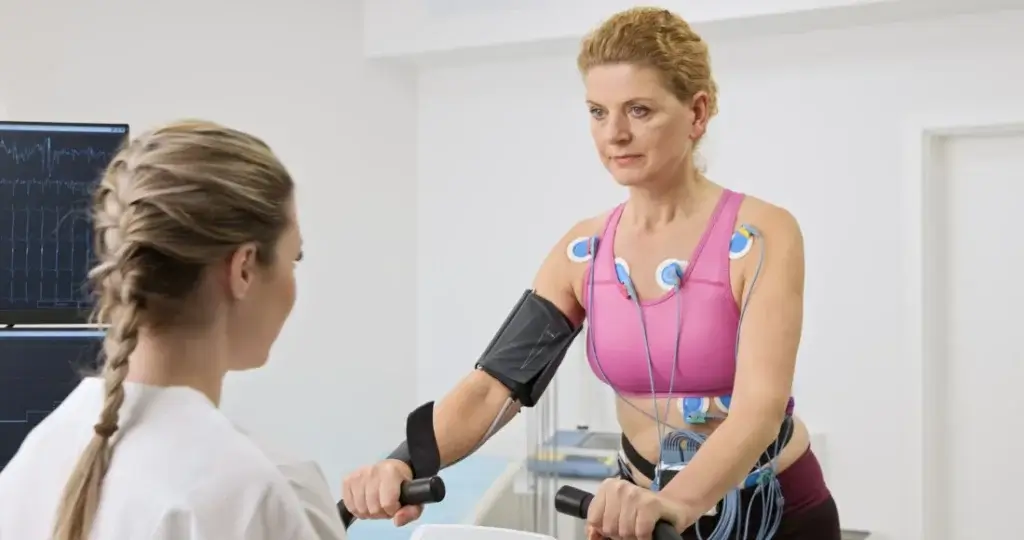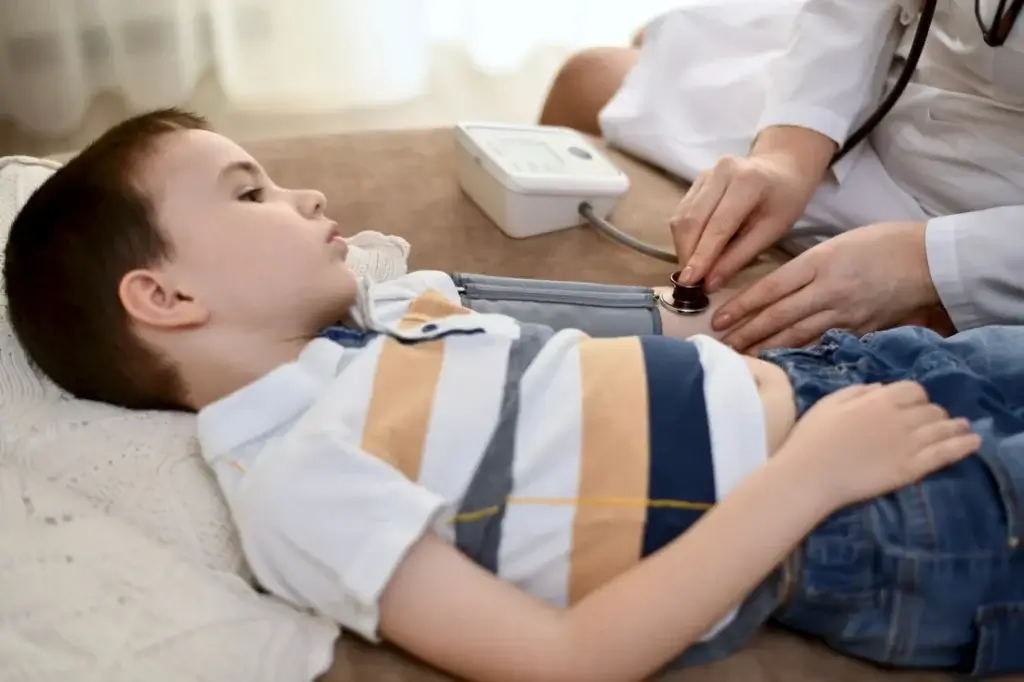Getting disability for heart conditions is possible, though not automatic. However, many heart conditions do qualify for Social Security disability. What matters most is recent medical evidence showing your condition negatively affects how your heart (or your circulatory system) functions.
One example of a condition the Social Security Administration (SSA) counts as a disability is congestive heart failure (CHF). Aneurysms also often qualify for disability, along with coronary artery disease and postural orthostatic tachycardia syndrome (POTS).
Simply having one of these conditions isn’t enough on its own, however. In addition to your medical condition, the SSA looks at your work history, monthly income, and current benefits, if any. We’ll explain how to qualify for disability for heart conditions, when to expect your first payment and more below.
What Exactly Do You Need to Show the SSA to Get Disability for Heart Conditions?
Before the SSA looks at your heart condition, first, they’ll confirm you meet all technical requirements to qualify for disability.
These include:
- Enough recent work history while also paying into Social Security. In general, you must work for 5 years during the last 10 to qualify for Social Security disability.
- Not currently getting any other Social Security payments every month. Some examples include survivor, spousal, early retirement, or regular Social Security.
- Not working and earning more money than the current SGA limit when you file. For 2024, that means you can’t make more than $1,620 per month from work.
Pro Tip: You must prove you cannot work at all for at least 12 months because of your heart condition. So, if you’re still working when you apply, the Social Security Administration may automatically reject your disability claim.
The SSA requires that you exhibit common indications of a heart condition, such as:
- Leg swelling
- Chest pain or heart palpitations
- Fatigue
- Feeling out of breath after any physical activity
Social Security will also require you to undergo certain tests so they can verify your condition, such as:
- An EKG
- A stress test
- Angiogram
The Social Security Administration also wants to see that you’re currently under a cardiologist’s care and see your doctor regularly.

Getting Disability for Heart Defects in Adults
A study from the Centers for Disease Control (CDC) found adults with heart defects are up to 8 times more likely to have a disability than those without.
That study found 2 in 5 adults with a heart defect also have a disability. Most often, people born with heart defects have cognitive disabilities. This means it makes it hard or impossible for those people to concentrate, remember things, or make decisions.
On average, half the disabled adults in the CDC’s heart defect study said they hadn’t worked in the past year. Half also reported never receiving any disability benefits. And while 1 in 5 also said they applied for disability assistance, the SSA denied those claims.
How Parents can Get SSI Disability for Heart Conditions in Children
We know less about the number of children in the U.S. who live with heart conditions. The same is true of their medical needs. A 2016 CDC study showed that 1 in 77 children in the U.S. were living with a congenital heart condition. That means nearly 900,000 kids today have one.
The same study showed children with a heart condition were 60% more likely to have special healthcare needs. By contrast, just 20% of children without a heart condition reported the same special needs.
Children under 18 who live in a home with limited income and resources can potentially qualify for SSI disability. The SSA rules say this condition must:
- Be severe
- Directly limit the child’s daily activities
- Last for a minimum of one year (12 months in a row)
Parents of children with heart conditions can begin the SSI application process online at the SSA’s website. You’ll need to do all the following steps once you’re ready to apply:
- Have all your child’s medical records on hand
- Familiarize yourself with the Child Disability Report before you start filling it out
- Have a phone conference with the Social Security Administration to complete your child’s SSI claim
Pro Tip: Learn what questions the SSA will ask during your SSI phone interview.

Most Common Heart Conditions Approved for Disability Benefits
The SSA has what’s called a Blue Book that lists all conditions they currently evaluate for Social Security disability benefits. The heart conditions in the Blue Book’s listing of disabilities that can qualify for benefits include:
- Congestive heart failure, which is sometimes called chronic heart failure. CHF means your heart fails to function in the way your body needs for you to stay alive and active. To qualify for disability, your heart must function at 30% or less of the normal rate.
- Hypertensive heart disease, a condition that results from chronic high blood pressure. That prolonged, elevated blood pressure makes your heart work harder normal, which can cause structural and functional deterioration over time.
- Ischemic heart disease occurs when your arteries experience poor oxygen flow. In other words, heart disease prevents your organs from getting enough oxygen to do their jobs.
- Chronic venous insufficiency is when your heart can’t pump blood efficiently enough to your legs, and sometimes also your arms. That venous insufficiency can then cause swelling, difficulty standing, and ulcers. To qualify for disability, your leg ulcers must not heal for at least 3 months in a row.
- Heart transplant is exactly what it sounds like. Doctors will put another person’s heart into your body if your own cannot function well enough to keep you alive. The SSA counts a heart transplant as an eligible disability for one year from your surgery date.
Important: You can see the full list of heart conditions Social Security evaluates for disability benefits on the SSA’s website.
When Does the 90-Day Rule Apply to People Seeking Disability for Heart Conditions?
The Social Security Administration has a 90-day rule that usually applies to people filing claims for heart attacks and strokes.
This means they won’t review your Social Security disability claim until at least 90 days after the event. The SSA put this 90-day rule in place because many people recover quickly from both heart attacks and strokes.

If you haven’t made a full recovery 90 days after your heart attack or stroke, you should apply for disability. When you file your claim, remember that the SSA also evaluates your work history to determine if you qualify.
I Have a Stent. Can I Get Disability Benefits?
Having a stent alone won’t qualify you for disability benefits. Having a stent, though, might help your case. Doctors use stents to treat many different and quite serious heart conditions. So, the reason you have the stent (not the device itself) might help you qualify for SSD.
Pro Tip: List every health problem you have when filling out your application for disability benefits. Be sure to include any medications your doctor prescribes to treat those conditions, too, along with any drug side effects. Most people getting SSD benefits each month mentioned 3-5 total health issues on their claim paperwork.
Free Expert Claim Help Makes You 3x More Likely to Get Disability Benefits in 6 Months or Less
Getting disability for heart conditions paid within 6 months is 3x more likely when an attorney helps you apply. Attorneys charge $0 for helping you until after the SSA approves your benefits.
Don’t get benefits? Then under federal law, your lawyer cannot ask you for any money. We can connect you with a local expert who can answer all your disability questions for free over the phone. This phone call doesn’t require you to do anything else. We’ve helped more than two million people qualify for disability benefits since 2014.
Want to talk to a disability expert for free? Click the button below to start your free online benefits quiz now and see if you may qualify:
Get Your Free Benefits Evaluation
Lisa Allen is a writer and editor who lives in suburban Kansas City. She holds MFAs in Creative Nonfiction and Poetry, both from the Solstice Low-Residency Program in Creative Writing at Pine Manor College. Prior to becoming a writer, Lisa worked as a paralegal, where she specialized in real estate in and around Chicago.

